TOTAL PERFORMANCE SCORECARD INNOVATION FOR IMPROVING EDUCATIONAL QUALITY AT SD NEGERI 61 BANDA ACEH
Abstract
This research aims to develop a strategic planning model based on the Total Performance Scorecard (TPS) to enhance educational quality. The research method employed is developmental research involving analysis, design, development, implementation, and model evaluation. The study addresses challenges in formulating school strategic plans that currently do not meet theoretical standards and lack synchronization among plan components. Findings indicate suboptimal alignment with theoretical standards and lack of synchronization among plan components, reflecting minimal involvement from school stakeholders. As a solution, a TPS-based strategic planning model was developed involving all educators to fill out Personal Balanced Scorecards, while administrative staff filled out Organizational Balanced Scorecards. Discussions involving supervisors, school inspectors, and the school committee through Focus Group Discussions produced a SWOT analysis used to formulate the school's vision, mission, goals, objectives, key roles, strategies, and programs for the next five years. Implementation of this model will occur following operational and theoretical validation in the field, with plans to develop TPS-based strategic plans by 2028. Implications of the research highlight the importance of strengthening the strategic planning process at SD Negeri 61 to align more closely with theoretical standards and integrate plan components. Active engagement of all school stakeholders is expected to improve understanding and acceptance of the strategic plan, ensuring that the school's vision, mission, goals, and strategies reflect their needs and aspirations. The development of this model is anticipated to effectively address educational dynamics and future challenges, enabling the school to play a more optimal role in enhancing educational quality.
Downloads
References
Andayani, S. (2019). Metode Penyusunan Rencana Strategis Perpustakaan Perguruan Tinggi. Libria, 11(2), 1–10.
Anwar, M., & Trihantoyo, S. (2021). Peran Layanan Khusus Guna Menunjang Pembelajaran Peserta Didik. Inspirai Manajemen Pendidikan, 9(5), 1197–1208.
Fahmi, C. N., Nurliza, E., AR, M., & Usman, N. (2018). Pelaksanaan Supervisi Akademik Dalam Meningkatkan Kompetensi Guru Sekolah Dasar. Jurnal Serambi Ilmu, 30(2), 104. https://doi.org/10.32672/si.v30i2.755
Halawa, A. N., & Mulyanti, D. (2023). Faktor-Faktor Yang Mempengaruhi Peningkatan Kualitas Mutu Instansi Pendidikan Dan Pembelajaran. Inspirasi Dunia: Jurnal Riset Pendidikan Dan Bahasa, 2(2), 57–64.
Halimah, S., Retnowati, R., & Herfina. (2019). Hubungan Antara Kepemimpinan Visioner Kepala Sekolah dan Keinovatifan Dengan Efektivitas Kerja Guru. Jurnal Manajemen Pendidikan, 7(2), 825–832.
Julkifli, Hamidah Darma, S. (2022). Upaya Meningkatkan Keterampilan Guru Dalam Menjelaskan Dan Mengadakan Variasi Mengajar Melalui Supervisi Klinis Dengan Pendekatan Kolaboratif di SMK BM Sinar Husni Medan. 11(2), 53–54.
Lubha, Syaifuddin, M., & Tambak, S. (2022). Supervisi Kepegawaian ( Ketenagaan ) Pendidikan. Jurnal Ilmu Multidisiplin, 1(2), 326–333.
Mulyati, A. (2022). Peran Kepala Sekolah Dalam Pendidikan. Jurnal El-Idarah Manajemen Pendidikan Islam, 8(2), 1–16. https://journal.parahikma.ac.id/el-idarah
Muspawi, M. (2021). Strategi Peningkatan Kinerja Guru. Jurnal Ilmiah Universitas Batanghari Jambi, 21(1), 101. https://doi.org/10.33087/jiubj.v21i1.1265
Myori, D. E., Chaniago, K., Hidayat, R., Eliza, F., & Fadli, R. (2019). Peningkatan Kompetensi Guru dalam Penguasaan Teknologi Informasi dan Komunikasi melalui Pelatihan Pengembangan Media Pembelajaran Berbasis Android. JTEV (Jurnal Teknik Elektro Dan Vokasional), 5(2), 102. https://doi.org/10.24036/jtev.v5i2.106832
Nuraini, N., Syaifuddin, M., & Tambak, S. (2022). Supervisi Hubungan Masyarakat Dalam Membangun Citra Positif Sekolah. Jurnal Manajemen Pendidikan Dan Ilmu Sosial, 3(2), 849–856. https://doi.org/10.38035/jmpis.v3i2.1182
Oktaviani, N. K. W., & Putra, M. (2021). Motivasi dan Disiplin Kerja Terhadap Kinerja Guru di Sekolah Dasar. Jurnal Imiah Pendidikan Dan Pembelajaran, 5(2), 294. https://doi.org/10.23887/jipp.v5i2.35146
Ridwan Abdullah Sani, Isda Pramuniati, A. M. ; editor. N. S. (2015). Penjaminan mutu sekolah. Bumi Aksara.
Samsu. (2016). Manajemen dan Kepemimpinan Pendidikan (1st ed., Vol. 01). Diandra Kreatif.
Siswopranoto, M. F. (2022). Standar Mutu Pendidikan. Al-Idaroh: Jurnal Studi Manajemen Pendidikan Islam, 6(1), 17–29. https://doi.org/10.54437/alidaroh.v6i1.372
Sugiyono. (2019). Metode Penelitian Pendidikan Pendekatan Kuantitatif, Kualitatif dan R&D. Alfabeta.
Sumeyasa, I. N., Sunu, I. G. K. A., & Ariawan, I. P. W. (2020). Evaluasi Pelaksanaan Sistem Penjamninan Mutu…. Jurnal Administrasi Pendidikan Indonesia , 11(2), 75–84.
Suprapto. (2012). Peningkatan Kualitas Pendidikan Melalui Media Pembelajaran Menggunakan Teknologi Informasi di Sekolah. Jurnal Ekonomi Dan Pendidikan, 3(1), 34–41. https://doi.org/10.21831/jep.v3i1.632
Wiratman, A. (2021). Peranan Pengawas Dalam Meningkatkan Mutu Pengelolaan Sekolah Dasar. Jurnal Konsepsi, 10(2), 106–112. https://p3i.my.id/index.php/konsepsi
Copyright (c) 2024 Paedagogia: Jurnal Pendidikan

This work is licensed under a Creative Commons Attribution-NonCommercial 4.0 International License.
The author agrees to the following conditions upon publishing a work to Paedagogia: Jurnal Pendidikan:
1. Each article is licensed under a Creative Commons Attribution-NonCommercial 4.0 International License. The author(s) recognizes that Paedagogia: Jurnal Pendidikan has the right to be the first to publish under a Creative Commons Attribution-NonCommercial 4.0 International License. This license permits the copying and redistribution of this material in any form or format, as well as the composition, modification, and creation of derivative works of this material for any purpose, but Non commercial, as long as the author is credited with the original work.
2. Authors may submit articles separately or arrange for non-exclusive distribution of manuscripts previously published in this journal in other forms (e.g., to the author's institutional repository, publication in books, etc. ), provided that the manuscript is acknowledged as having been published first in the Paedagogia: Jurnal Pendidikan.
3. A copyright submission agreement must attach each approved manuscript prior to publication. You may obtain the form for the copyright submission agreement here (INA) (EN).








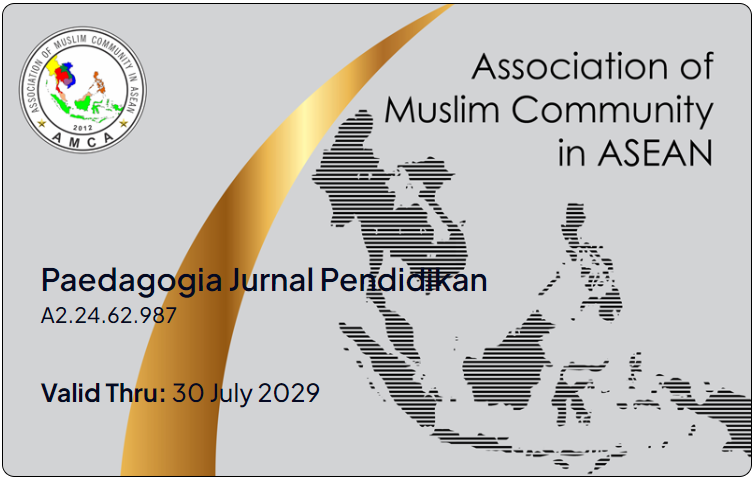




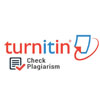










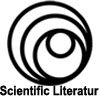






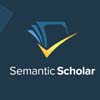
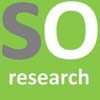
 This work is licensed under a
This work is licensed under a 